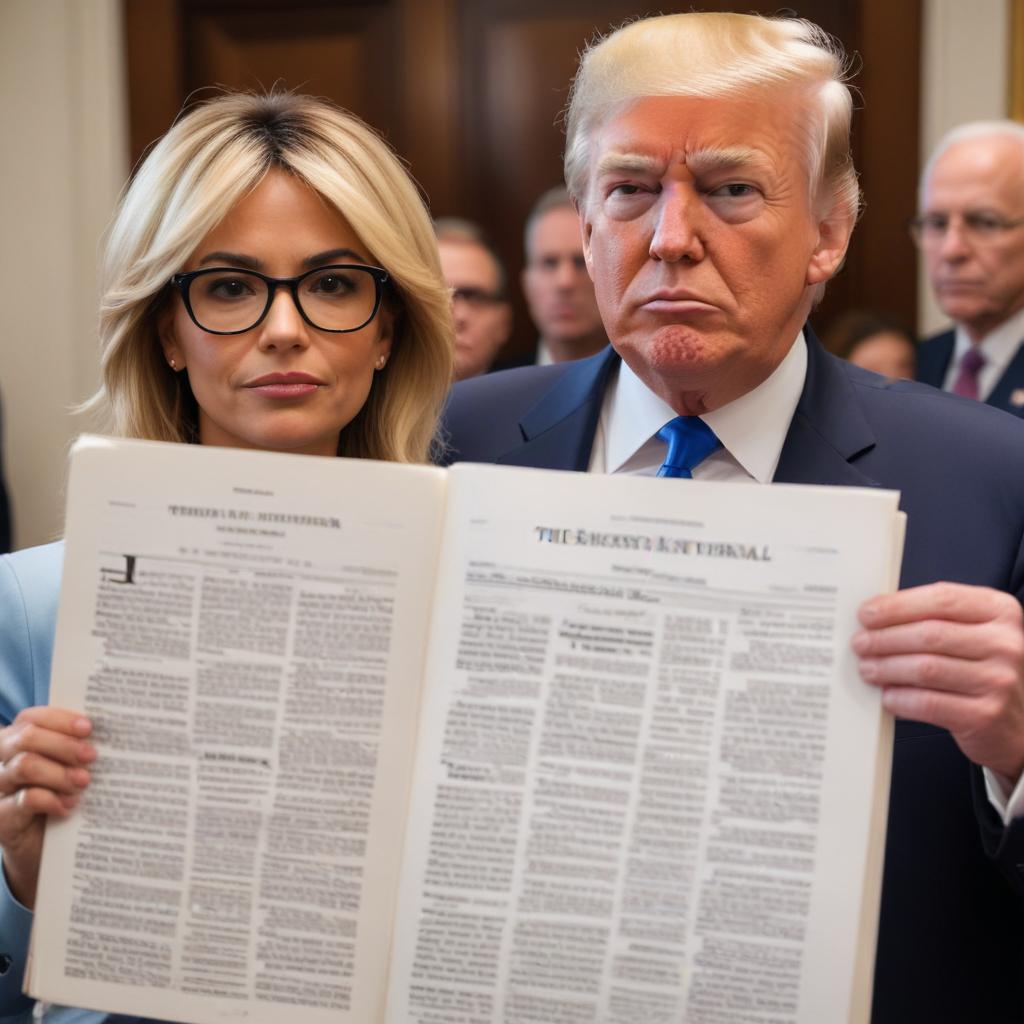President Trump takes on the Wall Street Journal with a defamation lawsuit and bans a reporter from Air Force One, escalating his war against the media.
President Donald Trump filed a $10 billion defamation lawsuit against the Wall Street Journal and its owner, Rupert Murdoch, following an article about a sexually suggestive letter bearing Trump's name found in Jeffrey Epstein's belongings. Trump denies any involvement. In a further escalation, the White House banned Wall Street Journal reporter Tarini Parti from covering Trump's upcoming trip to Scotland, citing the newspaper's "fake and defamatory conduct." This action reflects Trump's history of aggressive tactics against media outlets that criticize him, including lawsuits against CBS News, ABC News, and Meta. While Trump has previously won multimillion-dollar settlements in such cases, the Wall Street Journal has vowed to fight this lawsuit. Legal experts note that while presidents can file libel suits, this action appears to be an attempt to suppress speech. The incident highlights a broader pattern of intimidation against news organizations that report negatively on Trump, although not all outlets have been deterred. The Wall Street Journal, despite its generally conservative leanings, has been critical of Trump. Other Murdoch-owned outlets, such as Fox News, have been more supportive. The situation is further complicated by the recent withholding of government files related to the Epstein case, which has caused some of Trump's base to turn against him, placing even supportive news outlets in a difficult position.



